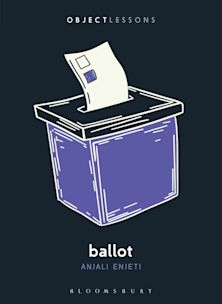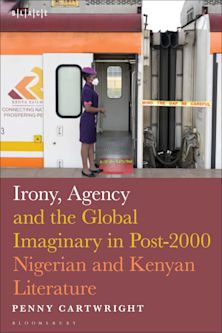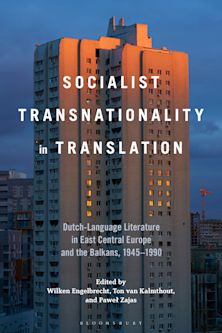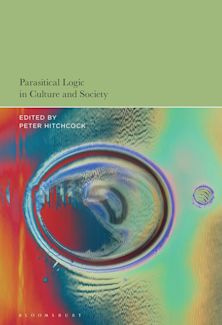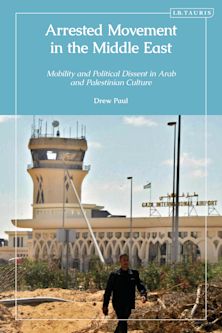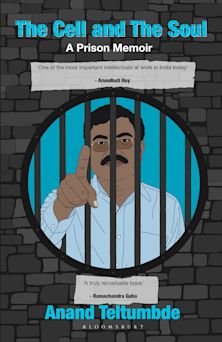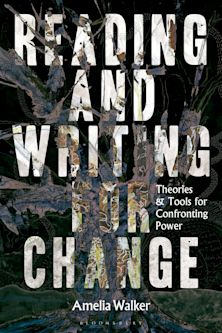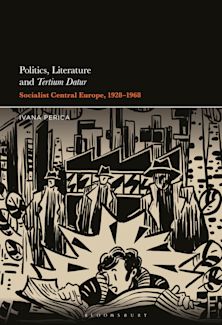- Home
- ACADEMIC
- Literary Studies
- Literature, Politics and Activism
- Veteran Activism and the Global War on Terror
Veteran Activism and the Global War on Terror
Post-9/11 Narratives of Dissent and American War Literature
Veteran Activism and the Global War on Terror
Post-9/11 Narratives of Dissent and American War Literature
You must sign in to add this item to your wishlist. Please sign in or create an account
Description
Veteran Activism and the Global War on Terror is the first study of the literature of dissent that has emerged from the veterans of the global War on Terror.
Spencer Ackerman's Reign of Terror stated that “The most impactful activism against the War on Terror came from within the Security State itself . . . low ranking soldiers and intelligence contractors whose exposure to the war prompted them to expose it to the world.” Veteran Activism and the Global War on Terror examines this subculture of veterans whose stories have dramatically shifted the conversation about literature and activism. Author M. C. Armstrong introduces and explores America's post-9/11 soldier-writers, a community that challenges pivotal contemporary assumptions about allegiance, democracy, geography, solidarity, and national identity.
Chapters are organized around a triad of core concepts–parrhesia, cosmopolitanism, and dissensus–and discuss authors including Elliot Ackerman, Kristin Beck, Joseph Hickman, Phil Klay, Kevin Powers, and Edward Snowden. Armstrong argues that this scene represents a literary movement and perhaps the most significant literary community since the Beat Generation, and Veteran Activism and the Global War on Terror reads the work of these writers as the loci of a “dissenting” overhaul of the official narratives and rhetorical maps that chart the United States' Global War on Terror.
Table of Contents
I. The Challengers-Fearless Speech from the Forever War
1. Parrhesia and the Conceptual Apparatus of Outspokenness: From Rhetoric and Politics to Aesthetic Analysis
2. The Map of the Territories: Argument Structure
II. Disidentity Politics
1. More Than Ground Zero: Mall Warriors and Patriotic Correctness
2. Geographies of Value: Klay's Redeployment
3. Truth in Digital Space: Snowden's Permanent Record
III. The FOB and Beyond: Patriotism at the Limit
1. Democracy in No Man's Land: Elliot Ackerman's “The Fourth War”
2. Empathetic Unsettlement: Ackerman's Green on Blue
3. The Sheepdog: Transgender and Trans-space in Beck's Warrior Princess
IV. Extraordinary Renditions
1. Staging Dissensus
2. Stay Deviant: Powers's The Yellow Birds
3. Camp No: Hickman's Murder at Camp Delta
V. Conclusion: Ethics, Style, Space: The Soldier-Writer Subculture
Notes
Bibliography
Index
Product details

| Published | 05 Sep 2024 |
|---|---|
| Format | Ebook (Epub & Mobi) |
| Edition | 1st |
| Extent | 192 |
| ISBN | 9798765112878 |
| Imprint | Bloomsbury Academic |
| Publisher | Bloomsbury Publishing |
About the contributors
Reviews
-
The first book project of this kind, Veteran Activism is an original piece of public-facing scholarship that is not only impeccably researched, theorized, and argued but also refreshingly interdisciplinary and accessibly written. Trailblazing in focus, approach, and conclusions, Armstrong brings rhetorical, critical-theoretical, and ethnographic methodologies to bear on the discourse of dissent permeating the fast-expanding body of work by post-9/11 American soldier-writers across a range of forms and media.
Christian Moraru, Class of 1949 Distinguished Professor in the Humanities, University of North Carolina, Greensboro, USA
-
Written from the double perspective of someone with academic expertise who also worked as an American journalist embedded with Special Operations Forces in Iraq, M.C. Armstrong offers fascinating insights into how American military veterans came to reconceptualize ideas of patriotic duty and homeland after 9/11. Starting with the famous case of Edward Snowden but also ranging across fiction writers such as Elliot Ackerman and Kevin Powers, Armstrong provides a compelling account of how these 'veteran-activists' engaged with a new era of 'disidentity politics,' where the old markers of allegiance were not so conceptually secure. This provocative book should provide food for thought and controversy not only in academic circles but also the wider public sphere.
Paul Giles, Professor of English, Australian Catholic University, Melbourne, and author of The Global Remapping of American Literature

ONLINE RESOURCES
Bloomsbury Collections
This book is available on Bloomsbury Collections where your library has access.












